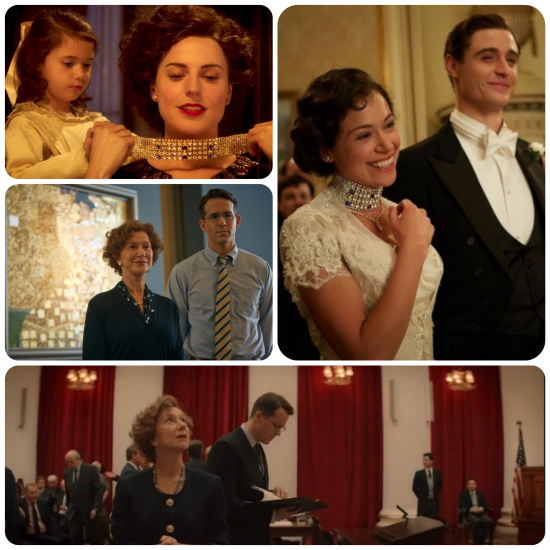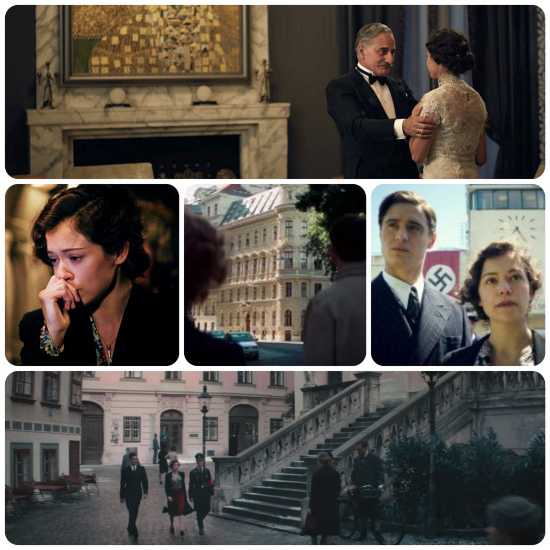
Ever since Anzac weekend, when it was highly recommended to me by our long-time family friends Anne and Brian, the idea of seeing this movie has been playing on my mind. And yesterday I thought – why on earth not? It has been a hectic few weeks at work, the temperature is dropping by the day, and huddling up in the calming darkness of the movies for a couple of hours with a cup of hot chocolate would serve as a fitting reward, a welcoming escape from the everyday pressures and a proper chance to unwind especially after having to work Saturday morning.
And so off I went in my little red Yaris at 8pm, making sure I had wrapped up warmly in a woolen scarf, my favourite pair of beige boots, and a vest that was so thick I felt like I was wearing a duvet.
As it turned out, I was not quite in the mood for hot chocolate (after over-indulging on sugar from devouring a big bowl of Anne’s beautiful apple pudding that evening – surely I can blame that on my body telling me to store away some fat in preparation for Winter??), so instead I opted for a small popcorn in combination with the water bottle sneakily hidden in my handbag. The cinema was absolutely chocker – the queue to the snack bar stretched all the way across the foyer, and the broken electronic ticket kiosk machines did not help. Luckily I had the foresight to arrive twenty minutes early, so was happily chomping on my popcorn and comfortably seated in the soft seats of Cinema 6 without any dramas in time for the movie to start.

Woman in Gold, directed by Simon Curtis, portrays the true story of Maria Altmann and lawyer Randol Schoenberg, as they embark on a battle with the Austrian Government to recover a painting of Maria’s aunt Adele Bloch Bauer (otherwise known as the famous Woman in Gold) that Maria believes rightfully belongs to her family. During World War II, the painting was taken by force from the Altmann family by the Nazis along with many other prized possessions. As the film progresses, the tragic and haunting story behind the glamorous painting is revealed, along with the emotional conflicts as both Maria and Randol faces their pasts and make discoveries about not just others, but also themselves.
One of the main points that make a film memorable is the growth of characters. It was intriguing to see what started off as such a small and seemingly harmless seed, like a woman’s curiosity about a shred of her past, can thrive quickly and end up having such a huge impact on not just those around her and even two separate countries, but can also have the ability to forever transform themselves. Academy Award-winning Helen Mirren brilliantly brought Maria to life, and she began the film as a headstrong lady with a strong determination to do justice for her family. Her willfullness and resilience in spirit shines through in the humourous speech made at the beginning of the film at her sister's funeral - "I truly love her, but truth is, we were always competitive. If life is a race, you beat me to the finish line. But if life is a boxing match, I'm the last one standing." However, as the layers of truth are gradually peeled back, her fear of the past returned and she withdrew into the shadows of her heart, reluctant to pursue justice to the end for fear of that it might only mean the past could replay itself and her aunt would once again be ripped out of her grasp. At this point, she described this as “letting go of the past”, and even advised Randol to do so. But later on, moved by the persistent enthusiasm of her lawyer, she finally found the strength and courage to fight for her family. Until finally, she was able to thank Randol for “keeping the memories alive”. The two quotes clearly demonstrated a change in her thoughts and acceptance of her past at long last; this was one of the main reasons why I found the film so powerful – for it allowed us to not only witness the complicated legal battles on the outside, but also subtly glimpse into the inner wars of Maria’s mind.
Randol’s transformation was also evident. From being disinterested in the case and pursuing it only for the possibility of fame and money that might be involved, to rediscovering his family connections and as a result being able to empathize and understand Maria on an unexpectedly more personal level, which eventually motivated him in helping her right through to the end at the risk of his own career and family. I found it invigorating to see his growing attachment and passion about the case and the underlying stories, and it was certainly difficult not to nail-bite my way through the two hours and cheer him on through the court battles. His dedication was inspiring and it was greatly encouraging to see that his good heart took him further than would be expected of any lawyer.

The blossoming friendship and witty dialogues exchanged between the pair of main characters were also a joy to watch. The chemistry, sense of support, and companionship between the actors were fantastic, and I just couldn’t help but chuckle at the familiar aloof manner with which Maria spoke a lot of the time (something to do with the old ladies at work again I think!). And once again I found myself wishing I could grow old to be as independent, elegant and graceful as Maria. A quietly stylish little clothing shop that matches the tidy curls of the lady owner and the glowing string of pearls often sitting at her throat, a cozy bungalow filled with photographs subtly displaying the traces of memories throughout life – who wouldn’t want such a peaceful content lifestyle to enjoy the lingering glimmers of your life?

As well as intense and heart-racing actions in the Nazi-pursuing scenes, there were also plenty of heart-wrenching moments like when the young Maria had to bid farewell to her parents before her escape from Austria, with both sides knowing it is very likely to be the last in their lives. It was no surprise that I could hear the lady sitting in front of me in the theatre blowing her nose after that particular scene was played, for my vision also seemed terribly blurry (damn those viscous eye drops!) It is fortunate that I cannot imagine even in the slightest what a goodbye under such harsh and ruthless situations must feel like. And to think that this happened countless times - in probably every household - during war is simply horrific. It really makes us appreciate the immense courage it must have taken for Maria to return after even so many years, and also to reflect on how blessed we are to be born and raised in peace, and not having to feel threatened or terrified for our loved ones every second of the day.

So, in the end, it was with a full heart and teary smile that I stood up from my seat and returned home. Hence allow me to also urge you to enjoy this wonderful depiction of Maria and Randol’s story - it will leave you thinking long and hard, that’s for sure. And, last but not least, I will leave you with a quote by an American Government worker in the film that had everyone around me snickering - "I want to go to Austria sometime with my daughter - she loves kangaroos!"


 留言列表
留言列表
